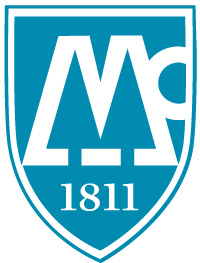 After two public hearing sessions, the Zoning Board of Appeals is expected to vote Thursday on whether McLean Hospital’s proposed Bypass Road facility is a permitted use for the property.
After two public hearing sessions, the Zoning Board of Appeals is expected to vote Thursday on whether McLean Hospital’s proposed Bypass Road facility is a permitted use for the property.
The ZBA heard arguments surrounding the appeal of a group of residents on September 29 and October 20. Both the appellants and MCLean also filed numerous court cases and letters to bolster their positions. Among them were three statements from Lincoln physicians arguing that dialectical behavior therapy (DBT) for boys and young men with borderline personality disorder constitutes a medical use and should therefore not be allowed.
Earlier this fall, a neighborhood coalition hired attorney Michael Fee to appeal the town’s building inspector finding that the proposed 12-bed residential facility is allowed under the Dover amendment, a state statute that exempts religious and educational organizations from certain local zoning bylaws. McLean says the use is primarily educational and not medical.
Definitional differences
The two sides disagreed about the definitions of terms such as “medical,” “educational” and “therapeutic.” For example, gym memberships are often paid for by healthy plans, but psychiatrists and psychologists are allowed to see patients in home offices.
They also disagreed about the exact nature of DBT. “DBT is described on McLean’s own website under the tab ‘clinical services.’ It seems like an educational use implies teachers and students, not therapists and patients,” Smith Hill Road resident Dan Pierce said at the October 20 ZBA hearing.
“BPD is a brain disease with emotional dysregulation as its hallmark and underlying documented brain abnormalities as its basis,” psychiatrist and South Great Road resident Lynn DeLisi wrote in a letter to the ZBA. “It is clear that persons who receive recognized treatments for this disorder do so in order to have their symptoms treated, not to be ‘educated’ on how to function with them.”
But McLean’s Dr. Philip Levendusky had a different view. At the September 29 ZBA hearing, he said DBT teaches “learning-based behavior change techniques integrated with relevant social and carefully managed biological, a.k.a. psychopharmacologic, strategies” and that it teaches mindfulness, emotional regulation, distress tolerance and behavioral flexibility. On October 20, he reiterated that DBT is educational because “we’re trying to teach them ways of reframing what their impulses are and other ways to handle things.”
Levendusky is senior vice president for business development and communications and director of the Psychology Department.
“It’s a great business model [to put a residential facility] in a beautiful town next door that’s too weak to resist its exploitation,” said Brooks Road resident Arthur Anthony. “There’s a lot of profit there. The Dover amendment was not intended to be a cover for big business to exploit neighborhoods and towns.”
Along with an hour of therapy each day, the facility will require 15 hours a week of classroom activities, which are “not a tagalong, not a passing fancy—it’s completely integrated,” Levendusky said, adding, “this is three to five times more educational activity than we have on Cambridge Turnpike.”
Although prescription drugs can be administered and there will be a doctor and nurse at the Bypass Road site, they will not monitor vital signs or perform any other medical procedures,” Levendusky said. Likewise, there will be classrooms and meeting rooms rather than medicalized treatment rooms. “There will be a small medical and recreational component, but I’m hoping you’ll find this is primarily educational,” he said.
The Bypass Road building will be locked “based on [neighbors’] concerns, not based on the profile of the kids,” Levendusky said. Teenagers who are actively abusing substances or who have a police record will not be permitted.
McLean is applying for licensure for the Bypass Road facility from the state Department of Early Education and Care, which also licenses other children’s facilities including day care centers, McLean’s 3East inpatient facility for teenage girls (which is also licensed by the Department of Public Health), the Perkins School for the Blind and the Home for Little Wanderers. Because its residents are adults, McLean’s facility on Concord Turnpike is licensed by the state Department of Mental Health.
The whole issue is murky enough that “you can be intellectually honest and rigorous and come down on either side,” former Planning Board member Bob Domnitz, who was in the audience, told the ZBA. “This project is almost certainly headed to court, so you have to ask yourself, ‘What would residents want us to do?’ The answer is to follow the zoning. I don’t see why a local board would approve this in the absence of a clear mandate or requirement to do this. I’m asking you to keep this trust intact.”
The residents who appealed the building inspector’s decision are Steven and Linda Kanner, Robyn Laukien, Daniel McCarthy, Jay Gregory, Douglas and Lisa Elder, Ted and Nandini David, Beverly and Daniel Peirce, Michael and Lisa Gurrie, Lara and Arthur Anthony, and Mark and Sarah Crosby.